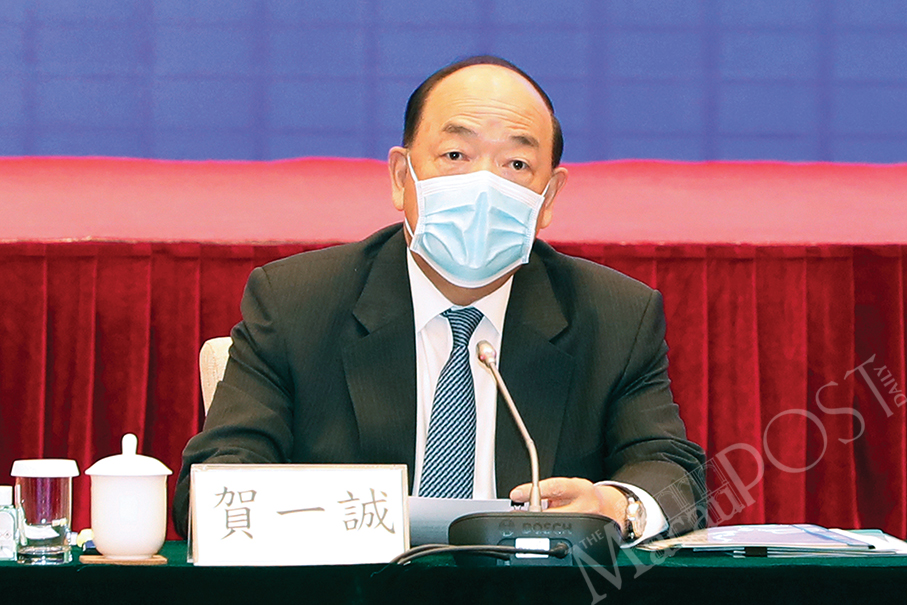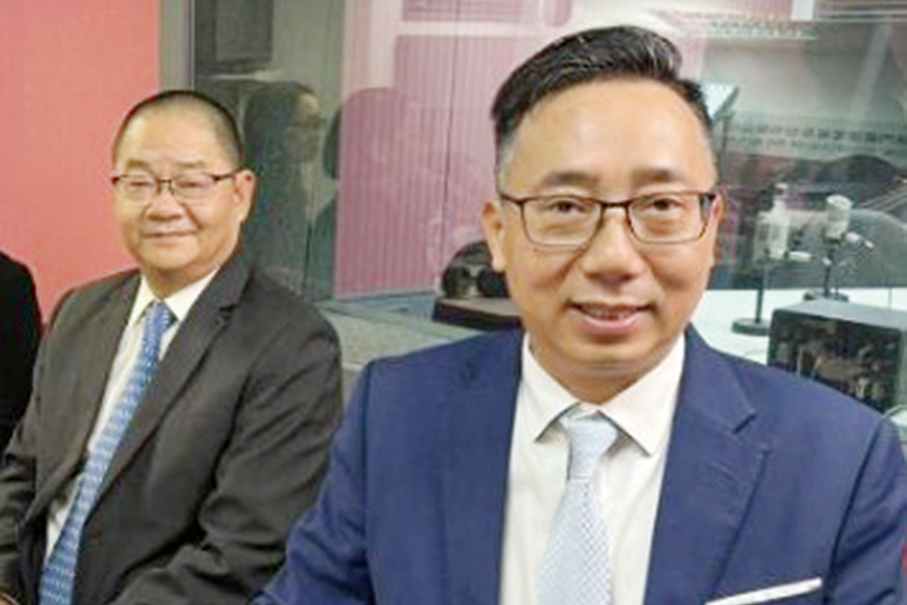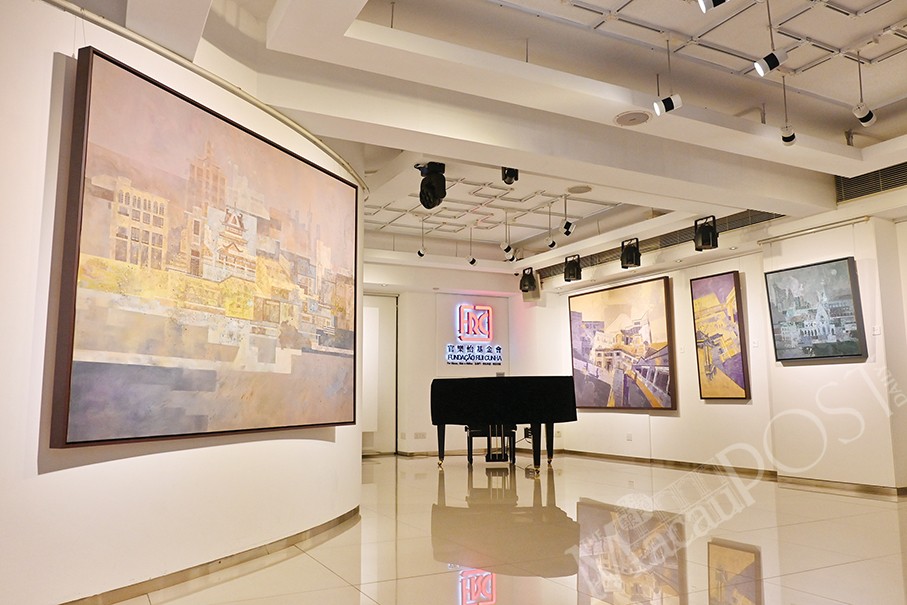Chief Executive Ho Iat Seng said yesterday that Macau’s economy is “gradually showing signs of post-pandemic recovery”, but the “volatility” of the COVID-19 situation in neighbouring regions is creating uncertainty about the city’s economic prospects.
The chief executive also pledged to make new progress in the development of new industries in Macau such as big health and modern finance.
“Big health” has been defined by mainland planners as a full suite of health services that cover the entire care continuum.
Ho made the remarks in a speech while chairing this year’s annual plenary meeting of the government-appointed Economic Development Council (CDE) at the Services Platform Complex for Commercial and Trade Cooperation between China and Portuguese-speaking Countries (PSCs) in Nam Van.
The meeting, which was held behind closed doors, was open to the media at the beginning when Ho made his speech.
In the speech, Ho underlined Macau’s “hard-won” achievements in its COVID-19 prevention and control efforts thanks to the central government’s support and the concerted efforts of various segments of Macau’s civil society.
Ho said that the local government has been rolling out various measures to boost Macau’s economic recovery, adding that with the collective cooperation by various sectors of civil society, the city’s socioeconomic landscape has remained basically stable, and the local economy is “gradually showing signs of developing again”.
However, the chief executive acknowledged, the “volatility” of the COVID-19 epidemic situation in neighbouring regions is still causing uncertainty about Macau’s economic prospects, because of which, Ho said, the local government must continue to actively and prudently tackle the situation.
Ho also said that 2022 is a “crucial” year for Macau to seize the opportunities created by the nation’s continuous development. The local government will make an all-out effort to continue with its “good job” in COVID-19 prevention and control work, to orderly implement the various tasks and measures laid out in Macau’s second five-year development plan, to actively and pragmatically promote the development of the Guangdong-Macau In-depth Cooperation Zone in Hengqin, and to promote the local economy’s appropriate diversification and sustainable development, Ho said.
Development momentum & competitiveness
In the future, Ho said, the development momentum and competitiveness of Macau’s economy will need to be strengthened.
On the one hand, Ho said, Macau must consolidate and enhance the advantages of its “traditional” industries. More specifically, according to Ho, the local government will continue to push ahead with enacting the various amendments to Macau’s gaming industry law, in line with its objective of developing the city into a world tourism and leisure centre.
A bill amending the gaming industry law is currently being reviewed by a standing committee of the Legislative Assembly (AL) after its outline was passed by a plenary session in its first reading in January.
Ho said that the local government will also intensify the cross-sectoral integration of “tourism+”, according to which the government will strengthen the tourism sector’s interactive development in conjunction with its related industries such as conventions and exhibitions, big health, sports, e-commerce, and cultural and creative industries.
While on the other hand, Ho said, Macau must actively promote the development of a number of new emerging industries, such as modern finance, high-tech, convention and exhibition, culture and sports, and the big health industry, based on the research, development and manufacturing of traditional Chinese medicine (TCM) products. Ho pledged that the local government will strive to make new progress in the development of these industries.
Ho also pledged that the local government will intensively work for the important tasks and strategic positions laid out in the General Plan of the Development of the Guangdong-Macau In-depth Cooperation Zone in Hengqin. The local government will also constantly strengthen its role in the “dual circulation” strategy of the nation’s economic development, Ho said.
The Economic Development Council is a consultative body that consists of the chief executive, secretary for economy and finance, other senior government officials overseeing economic and financial matters, leading businesspeople, trade unionists, and scholars. The council is chaired by the chief executive, with the secretary for economy and finance as its vice-chairman. It is tasked with advising the government on formulating its economic development strategy and economic and human resources policies. The council, which was set up in 2007, holds one plenary meeting a year.
Secretary for Economy and Finance Lei Wai Nong and other senior officials such as Economic and Technological Development Bureau (DSEDT) Director Tai Kin Ip attended yesterday’s meeting.
‘Complexity & dynamics’
Meanwhile, according to a statement by the Government Information Bureau (GCS), Lei said during yesterday’s meeting that the since the COVID-19 pandemic, the local government has been rolling out various measures with the aim of relieving residents’ financial hardship, supporting businesses, boosting consumption and attracting visitors from more destinations.
Macau’s economy is gradually recovering from the adverse impact of the COVID-19 pandemic. However, Lei said, the speed of the city’s economic recovery will still face uncertainly for a period of time in the near future due to the COVID-19 outbreaks in neighbouring regions and elsewhere in the world, and the “complexity and dynamics” of the global geopolitical and macroeconomic landscape.

Chief Executive Ho Iat Seng chairs the 2022 Economic Development Council (CDE) annual plenary meeting at the Services Platform Complex for Commercial and Trade Cooperation between China and Portuguese-speaking Countries (PSCs) yesterday. Photo: GCS









